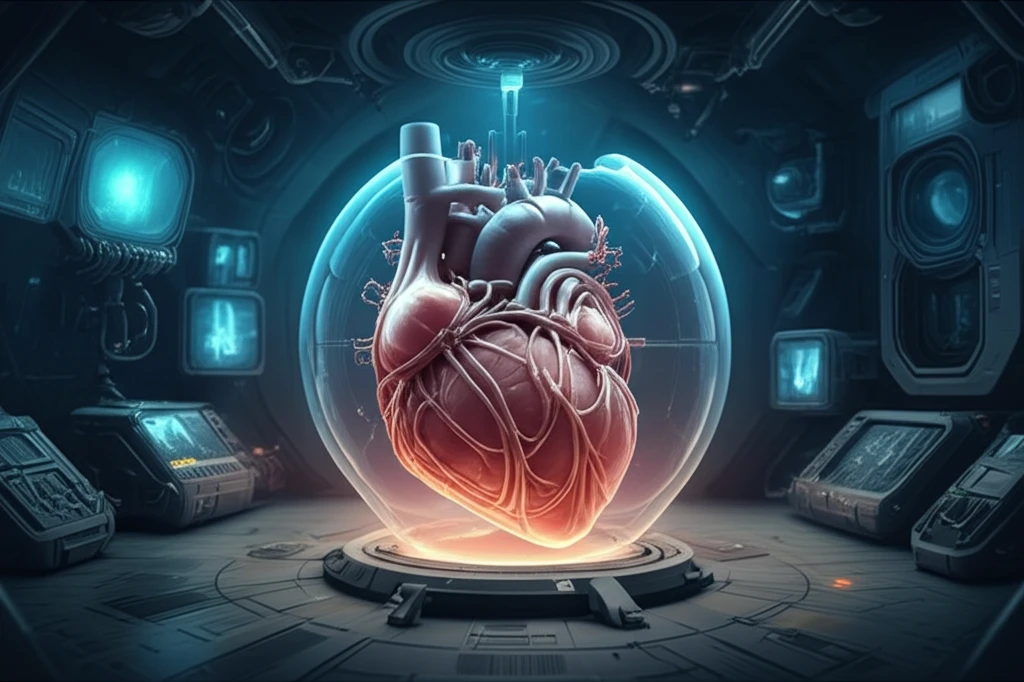
Stem Cell Revolution: Mending Hearts with Lab-Grown Valves?
"Could lab-grown heart valves from stem cells be the future of cardiac treatment? New research offers hope for a less invasive, more sustainable solution."
Heart valve disease is a growing global health concern, impacting millions with conditions that range from mild to life-threatening. Traditional treatments, such as valve repair or replacement, often involve invasive surgeries and the use of mechanical or animal-derived prostheses. While these interventions can improve survival, they come with their own set of challenges, including the risk of rejection, infection, and the need for long-term medication.
But what if there was a better way? Imagine a future where damaged heart valves could be replaced with new ones grown in the lab, using a patient's own cells. This innovative approach, known as tissue engineering, holds immense promise for revolutionizing cardiac treatment and offering a more sustainable, biocompatible solution for heart valve disease. Recent research has made significant strides in this field, bringing us closer to making this vision a reality.
This article delves into the fascinating world of stem cell research and tissue engineering, exploring how scientists are harnessing the power of human cells to create functional heart valves in the lab. We'll examine the latest breakthroughs, challenges, and potential implications of this cutting-edge technology for the future of cardiac care.
The Stem Cell Solution: Building Blocks for New Valves

The key to engineering functional heart valves lies in the unique properties of stem cells. These versatile cells have the remarkable ability to differentiate into various specialized cell types found in the body, including those that make up the heart valve tissue. Scientists can guide stem cells to become valve interstitial cells (VICs), which are responsible for maintaining the structural integrity and function of the valve.
- Feeder-Free Protocol: The iPSCs are differentiated using a special method that does not require support cells.
- Valve Interstitial Cells: The iPSCs are matured to Valve Interstitial Cells (VICs).
- Customizable Design: iMSCs are combined with 3D-printing techniques or scaffold engineering to create customized heart valves tailored to each patient's specific needs.
A Future of Healing: The Promise of Engineered Heart Valves
While significant progress has been made, engineering functional heart valves from stem cells is still a complex and evolving field. More research is needed to optimize the differentiation process, improve the mechanical properties of engineered valves, and ensure long-term durability and biocompatibility. As the technology advances, lab-grown heart valves hold the potential to transform cardiac treatment, providing a less invasive, more sustainable, and personalized solution for patients with heart valve disease. This ongoing research offers hope for a future where regenerative medicine can mend broken hearts and improve the lives of millions.
